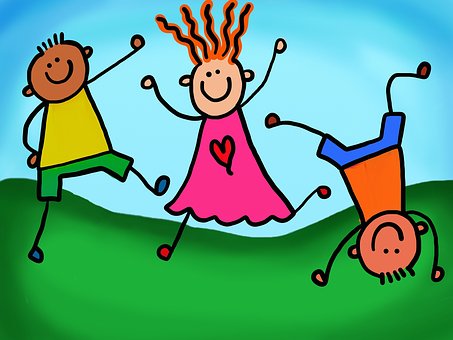Why Do Children Need Chiropractic Care?
Your child has a spine and nervous system that need cared for just like an adult. It is actually even more important to have your children checked as infancy and childhood are impressionable times of rapid growth and development of the spine and nervous system. Chiropractors examine and evaluate for proper movement, function, and alignment of the spine. Adjustments remove vertebral fixations (joints that are “stuck” and not moving properly) which reduces inflammation and interference to the nervous system. The nervous system controls all of the functions in the entire body. By having your child’s spine checked you are maintaining the health of your child’s entire body, naturally too! Chiropractic care is gentle and safe. Only light force is needed when adjusting an infant or child’s spine. Imagine the pressure needed to press your pinky finger into a ripe red tomato and you get the idea.
Now let’s start at the beginning as to why chiropractic for our little ones is so important. In utero, the baby is in a small space and could be in awkward positions at times. Secondly, birth can be a traumatic process on an infant’s body, even a smooth and natural birth without interventions. The baby is being squeezed through a small space in a short amount of time. If there are interventions such as pitocin causing more intense contractions, forceps, vacuum, or cesarean it is even more dire that your baby be adjusted as soon as possible after birth. These interventions can involve intense pulling and tractioning on the head and neck, and therefore on the spine and spinal cord. Due to all of these factors, it is very common for a newborn to have a misalignment in their cervical spine (especially the first vertebra, C1), and often the pelvis too. These are very easy to treat and babies respond very quickly. However, if neglected, the ramifications could be many and pronounced. Looking down the road, many children are diagnosed with idiopathic scoliosis as adolescents. Idiopathic means unknown cause. Is it possible that a misalignment from birth, left untreated, could cause the spine to make compensations leading to abnormal curves of the spine? It really is not worth taking a chance and waiting on the research to prove it. Adjustments are simple, quick and painless. When it comes to infants, chiropractic care helps with breastfeeding problems, colic, digestive problems, allergies, and sleep problems. Chiropractic adjustments can affect the body in many positive ways because of its influence on the nervous system.
So when should your child be adjusted and how often? It is important for children to be examined for spinal fixations after birth. It is suggested within the first 2 weeks unless there is an immediate problem such as not breastfeeding, then they should be evaluated as soon as possible. For a healthy infant or child, they should be adjusted when they first hold their head up (cervical curve develops at this time) and when they first sit, crawl, and walk (lumbar curve develops at this time). They should be adjusted at the first sign of a cold or ear infection, if they are not sleeping well, have a fall or after especially rough play, and if they are just “out of sorts”, not acting themselves. These are all good times to bring your child in for an adjustment and tune-up for the nervous system. Additional signs your child needs adjusted are if you notice your infant always looking or carrying or holding his or her head in the same direction or position. For example if she always looks to the right when in the car seat, sling or swing. If you notice resistance when turning her head to one direction verses the other. Also if your child’s neck or abdomen is sensitive to touch, and if they are experiencing constipation or frequent gas. And if all of this is too hard to keep track of, a monthly chiropractic visit should cover the bases. Here is a quick checklist of life events that would call for chiropractic care for your children.
- Birth, especially if it was Cesarian
- help with breastfeeding
- colic
- digestive problems
- allergies
- sleep problems
- bed wetting
- physical developmental delays
- developmental milestones: begin to hold up head, sitting, crawling, walking
- colds
- ear infections
- falls/rough play
- not feeding themselves
Get Health News you can use!
Sign up for our Newsletter NOW!


